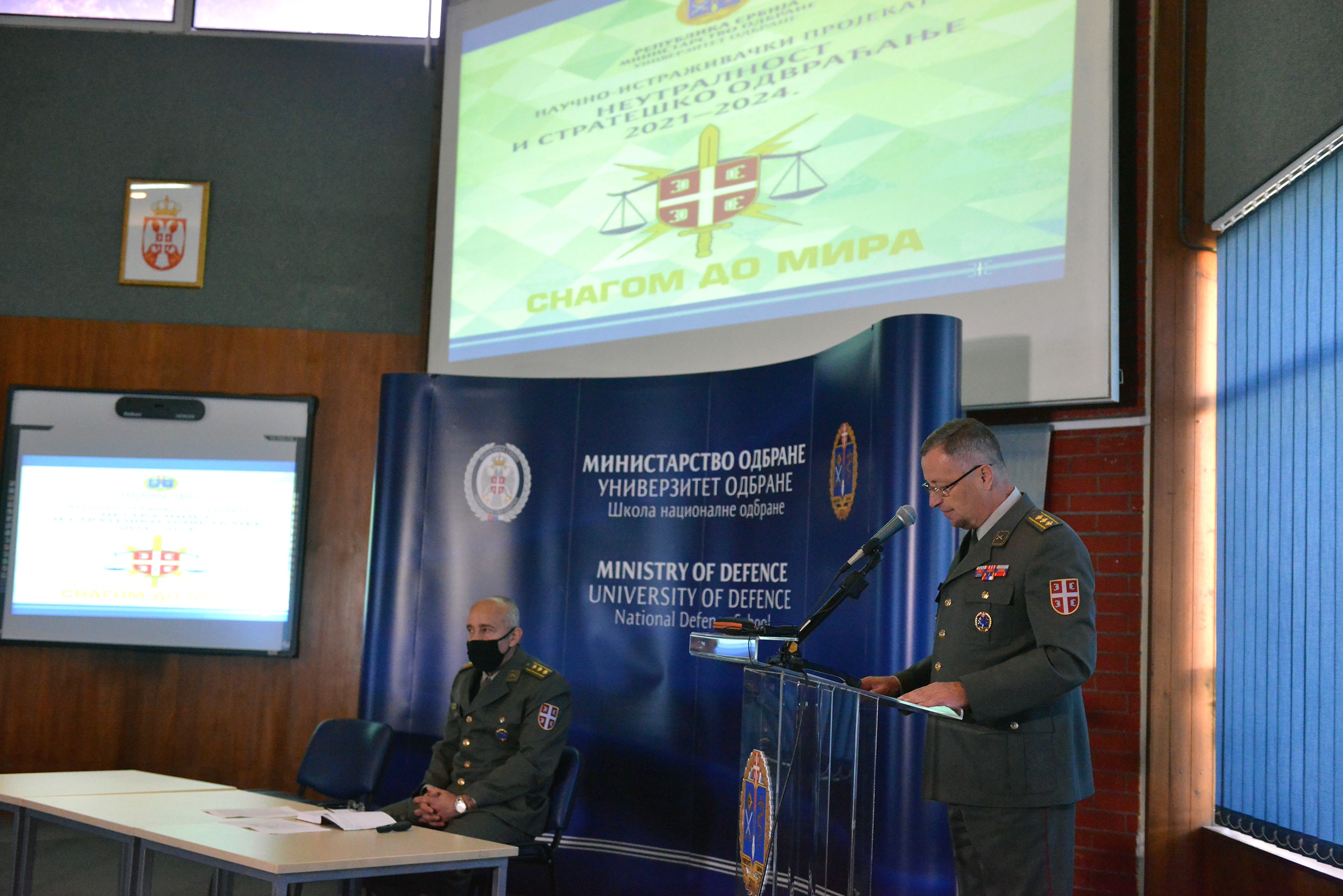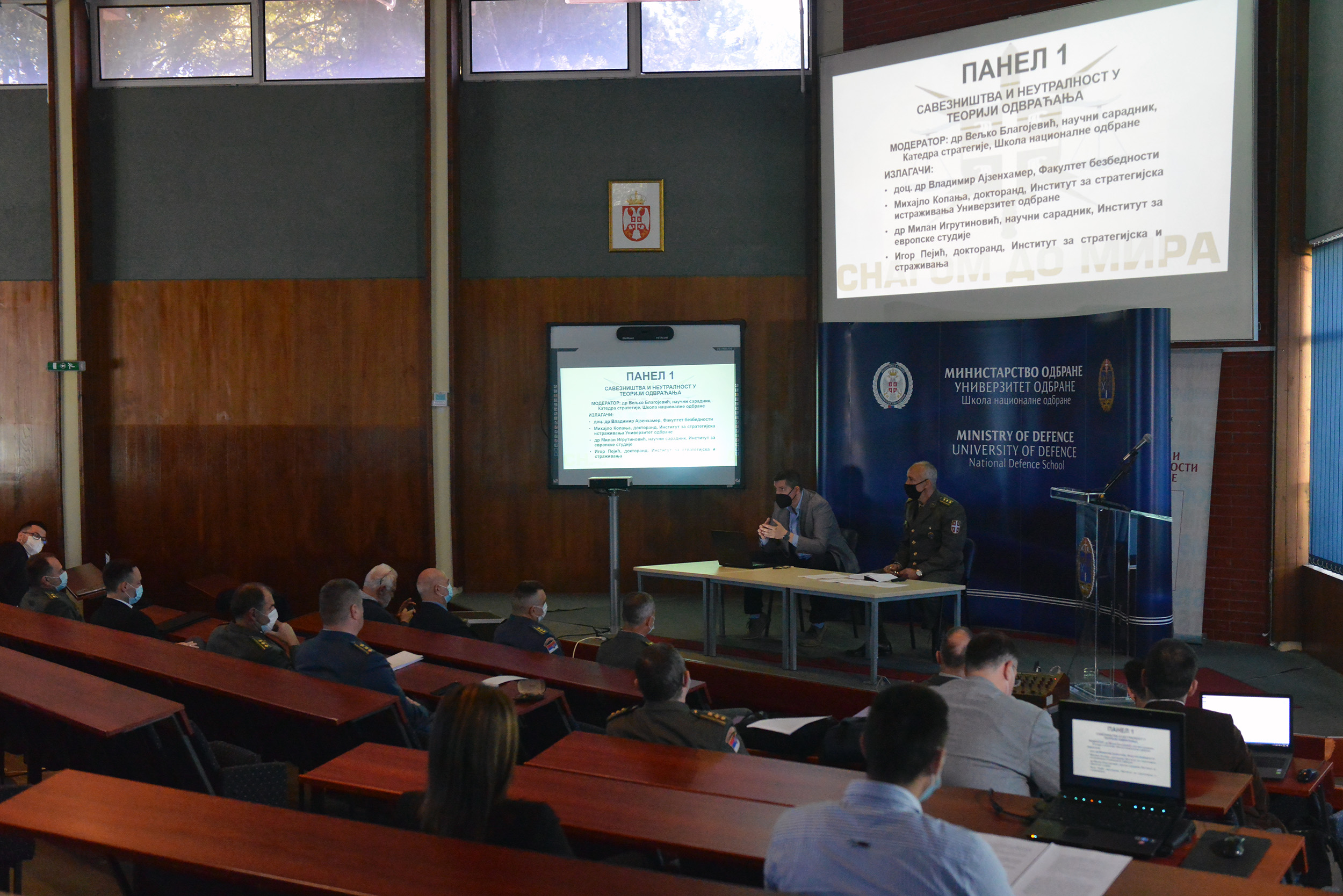21.05.2021.
Scientific conference on "Neutrality and Strategic Deterrence"
A scientific conference on "Neutrality and Strategic Deterrence" was held today in the lecture hall of the National Defence School’s Simulations and Distance Learning Section. The project deals with Serbia’s military neutrality in response to security challenges facing our country. Members of the National Defence School’s Department for Strategy, the Strategic Research Institute, the Military Academy’s Department for Social Sciences, as well as associates outside the Ministry of Defence and the Serbian Armed Forces participate in the project, and the project manager is Veljko Blagojević, PhD.
 Colonel Mićo Suvajac, Head of the National Defence School, addressed the participants, pointing out the great challenge facing them.
Colonel Mićo Suvajac, Head of the National Defence School, addressed the participants, pointing out the great challenge facing them.- The research project entitled "Neutrality and Strategic Deterrence" was designed to fully analyse Serbia’s strategic and doctrinal capabilities to devise a timely and effective deterrence strategy in a specific geostrategic environment, while applying the concept of military neutrality. You are faced with the great challenge of providing answers to such complex and important security and defence issues. We will present the results of your work in October this year, which will also mark the National Defence School Day - said Colonel Suvajac. He also conveyed greetings from the Defence University Rector, Lieutenant General Goran Radovanović, thus opening the scientific conference on “Neutrality and Strategic Deterrence”.
Today's activities were undertaken in the form of three panel discussions. The first panel dealt with alliance and neutrality in the deterrence theory, the second one covered neutral states’ geopolitical factors of strategic deterrence, and the third one discussed national and comparative experiences, followed by a final discussion and analysis of the scientific conference.
 According to the project manager, Colonel Veljko Blagojević, PhD, the research study will be carried out over the next four years, and project participants will gather every April. The completion of the study is expected by the end of 2023, followed by its promotion in wider scientific community.
According to the project manager, Colonel Veljko Blagojević, PhD, the research study will be carried out over the next four years, and project participants will gather every April. The completion of the study is expected by the end of 2023, followed by its promotion in wider scientific community.



